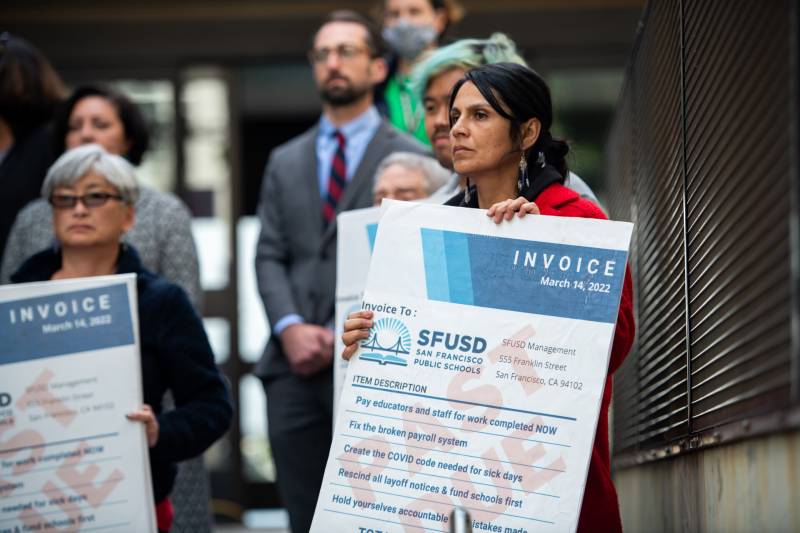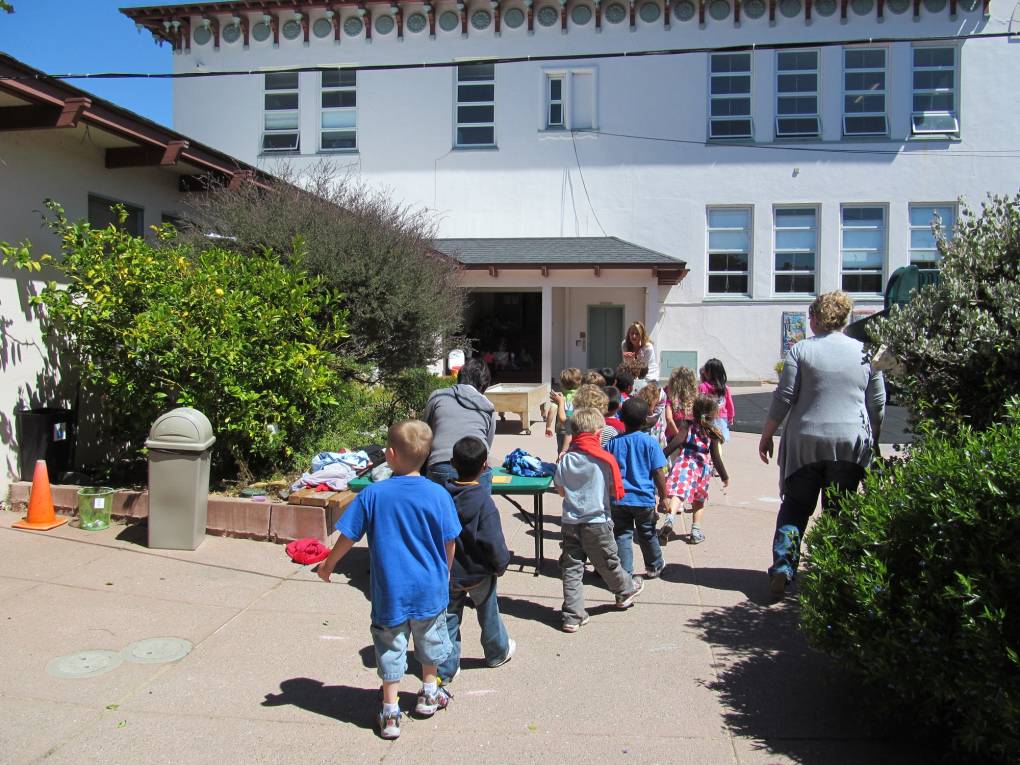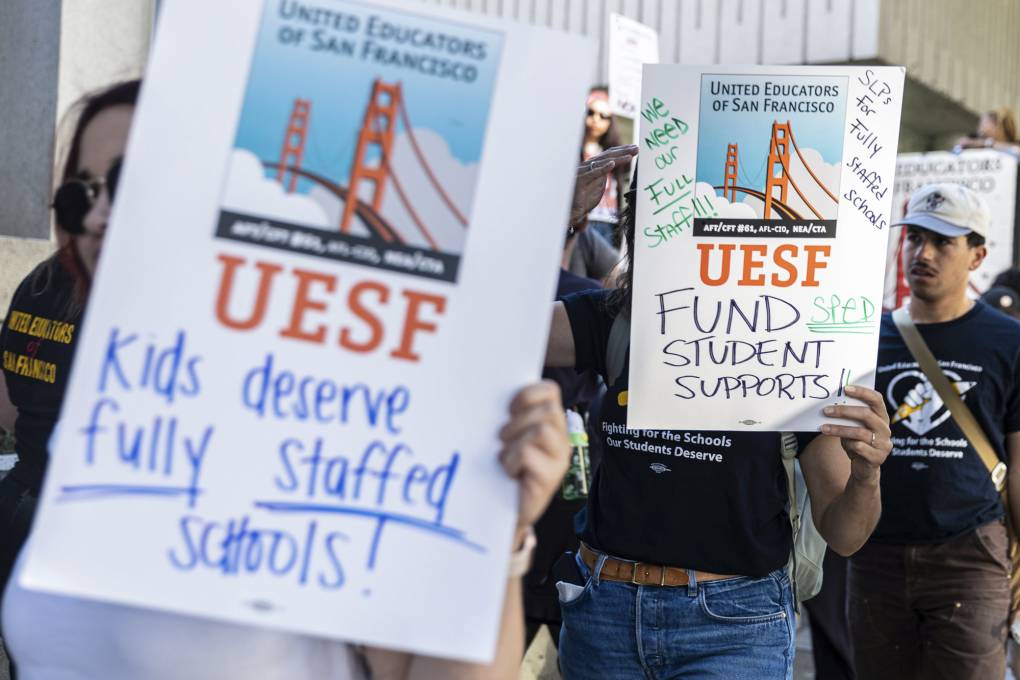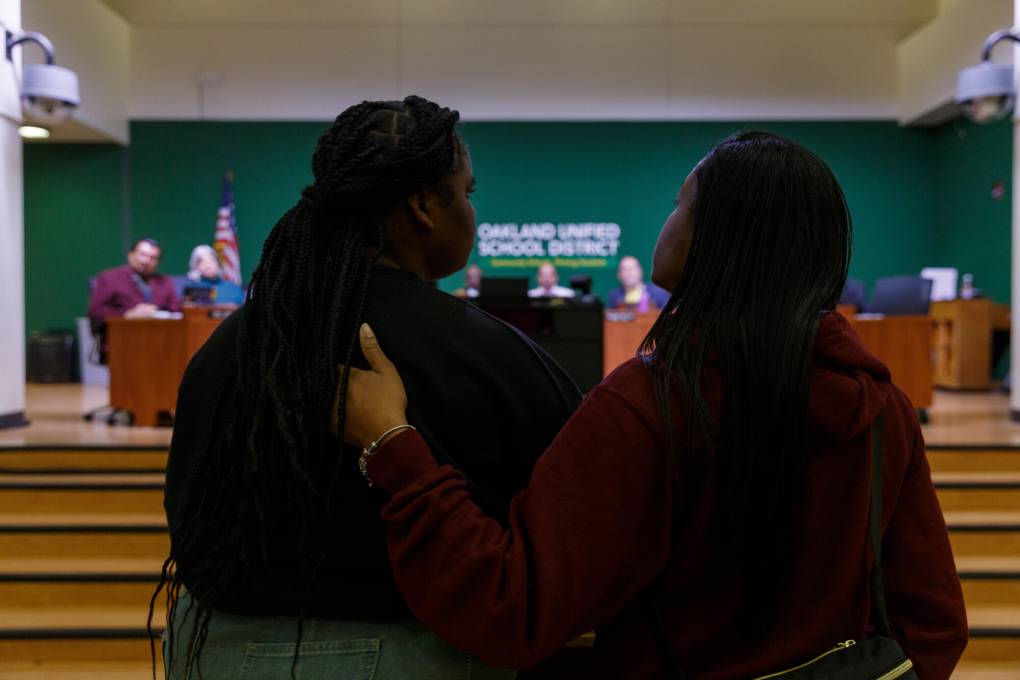The school board is shifting to a new way of operating, “where we do not listen to the loudest, or we do not appease the loudest, voice in the room, but we really focus on student outcomes,” Hsu told parents in the forum over Zoom.
Hsu has had her own difficult time with loud voices in the room when parents and community members shouted, “Racist!,” at one another during a contentious board vote to admonish Hsu, in August. The successful vote came after she made racist comments about Black and brown families; Hsu later apologized.
But Hsu wasn’t alone in delivering the message that the board’s focus needs to change. Lisa Weissman-Ward, an educator at Stanford Law School also appointed to the school board by Breed, took her own jab at the former commissioners.
“We want to govern, we want to be focused on process. We want the work of the board to be boring. We do not want to be making headlines for performative politics,” she said. “It doesn’t help our students, it doesn’t help our educators, it doesn’t help our caregivers, doesn’t help our community.”
In short, she said, she wants to make sure the school district’s budget “has a through line” to improved student academic outcomes.
The way the school board ran the district previously “has not worked,” said candidate and commissioner Lainie Motamedi, another Breed appointee. That’s why the current school board made a commitment to spend at least 50% of school board time on student outcomes and student work, she said.
“The previous board spent approximately zero time on that,” Motamedi told parents.
Left unsaid, however, was that many of the so-called “performative” ideas the recalled school board members tackled were pushed heavily by students themselves. The Black Student Union of Lowell High School, for instance, pushed hard for a lottery system, claiming the merit-based admissions policy led the school to educate very few Black students at the prestigious school.
Despite a public rebuke of the change to Lowell High School’s admissions policy (which was ultimately changed back), equity was top of mind for all the candidates.
Karen Fleshman, a candidate who is a consultant for youth-serving nonprofits in San Francisco, said she wants to be “laser-focused” on equity in schools, helping to create “a sense of belonging” by recruiting teachers from diverse backgrounds to help ground students.
“We have a big challenge with equity in the district going back from the beginning of the district,” Fleshman said, adding that although San Francisco has many job opportunities, “we’re not doing anything to connect and prepare our young people to that labor market.”
Fleshman said that’s where individualized learning plans come in, to help individual students connect to their career aspirations.
Candidate Alida Fisher, a special education advocate, pushed for more recognition around one of the root causes of missing classes: bad transit service. She said that comes directly from parents in a working group aimed at addressing truancy.



